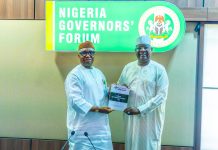The headwinds and economic strain of the past 18 months have left many businesses with little option but to evaluate costs. However, a recent PwC report states that while 52 percent of companies plan to curb or defer investments, only 9 percent will make those cuts in digital transformation. “Clearly, effective processes, combined with strong risk discipline and using FinOps to optimise cloud costs is more important than ever before. Managing through turbulence and disruption has become an essential skill for CIOs and IT decision makers,” notes Marilyn Moodley, Country Leader for South Africa and WECA (West, East, Central Africa) at SoftwareONE.
According to the State of FinOps 2021 report, cloud financial management, or FinOps, has become a mainstream practice in large organisations across all sizes of cloud spend. “Due to the increasing complexity of their cloud environments, reporting requirements and the sheer number of disparate teams requiring collaboration, large organisations have to adapt quickly as a slow pace of transformation is no longer feasible,” says Moodley.
Thanks to a surge in the use of digital technologies both at work and home, Moodley says more C-suite executives see the need to invest in digitalisation as a way to improve business efficiency and foster innovation. “Added to this, data from PwC and elsewhere shows that more than half of employees want to work remotely at least part of the time after the pandemic, so spending on technologies that enable a hybrid way of working will be crucial.”
She adds that the pandemic accelerated the pace of disruption in the banking, insurance, and wealth management sectors which were already under pressure to manage their cloud and technology rights and obligations from a compliance perspective. “Consolidating cloud spend, managing license consumption and facilitating cloud migration each present a massive challenge for organisations, irrespective of size. Add to this the need to manage compliance and risk factors, and the practice of FinOps becomes a necessity for organisations looking to balance stability and security with the agility that moving to the cloud provides.”
According to Gartner, public cloud spending (IaaS) will grow by over 38% percent in 2021, representing an estimated $82 billion market. “Even before Covid-19, most organisations had already moved at least some of their workloads into the cloud. The overnight shift to remote work then led to a marked increase in unbudgeted cloud spend which organisations are still grappling to get a handle on,” says Moodley.
She says the first step to rightsizing is an understanding of the fully loaded cloud costs and the association of these costs at a business unit level, before implementing the FinOps framework that allows ongoing spend management and optimization. “A sound FinOps strategy can ultimately increase an organization’s ability to understand cloud cost, through a combination of systems, best practices, and in turn allow them to optimize their consumption by promoting a culture of accountability.”
While the technology challenges facing the financial services industry are unique, Moodley says these can be overcome with the right processes and systems that offer guidance and management capability across the entire software portfolio. “Whether local, remote, within a data centre, or in a multi-cloud environment, competition from nimble FinTech innovators means traditional financial services must innovate to remain relevant. FinOps provides the framework to balance between Innovation and control so that you can manage as well as optimize your cloud resources, while driving business and digital transformation.”.








